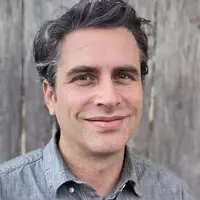Designing for bidirectional community-university learning: The Community Resilience integrated into an Earth System Science Learning Ecosystem (CRESSLE) project
Authors
 Adam Papendieck, The University of Texas at Austin
Adam Papendieck, The University of Texas at Austin
 Jay Banner, The University of Texas at Austin
Jay Banner, The University of Texas at Austin
 Didey Montoya, The University of Texas at Austin
Didey Montoya, The University of Texas at Austin
 Lucy Atkinson, The University of Texas at Austin
Lucy Atkinson, The University of Texas at Austin
 Patrick Bixler, The University of Texas at Austin
Patrick Bixler, The University of Texas at Austin
 Robert Duke, The University of Texas at Austin
Robert Duke, The University of Texas at Austin
 Angela D. R. Smith, The University of Texas at Austin
Angela D. R. Smith, The University of Texas at Austin
 Shirley Vincent, Vincent Evaluation Consulting
Shirley Vincent, Vincent Evaluation Consulting
Action for community resilience and environmental justice demands new educational structures, routines and practices that more equitably and productively integrate academic geoscience with local community-based ways of knowing, learning about and acting for change. Community Resilience integrated into an Earth System Science Learning Ecosystem (CRESSLE) is an NSF-funded project focused on establishing a learning and research ecosystem that links historically marginalized and minoritized communities in Austin, TX, neighborhoods with the community of academic geoscientists at UT Austin's Jackson School of Geosciences for work on community resilience challenges. Informed by sociocultural perspectives on situated learning, participatory research and co-production, the program designs for "bidirectional learning" between communities and universities in order to advance a long-term goal of transforming the culture of the geosciences to be more inclusive, equitable, and effective in acting for environmental justice. We will present (1) the educational context of the CRESSLE project, including the history of inequities around community resilience in Austin that demands better community-university partnership; (2) the theory of change and program design, including the role of key community partner organizations, bidirectional education and communication activities, and processes for co-designing research on climate change, water resources, and landscape; and (3) early (year 1) steps the program team is taking to conduct upfront research into how academic geoscientists and residents of Austin communities talk about and understand each other, the geosciences, and issues of community resilience and environmental justice. Upfront research is in progress, which involves surveys, focus groups, semistructured interviews, and a photovoice study. We will share information about the overall technical approach to research, instruments, and early lessons. By connecting information about this formative phase of the CRESSLE project with related work that other earth educators have undertaken, we aim to contribute to a productive discussion about equitable and effective community-engaged learning and research.
